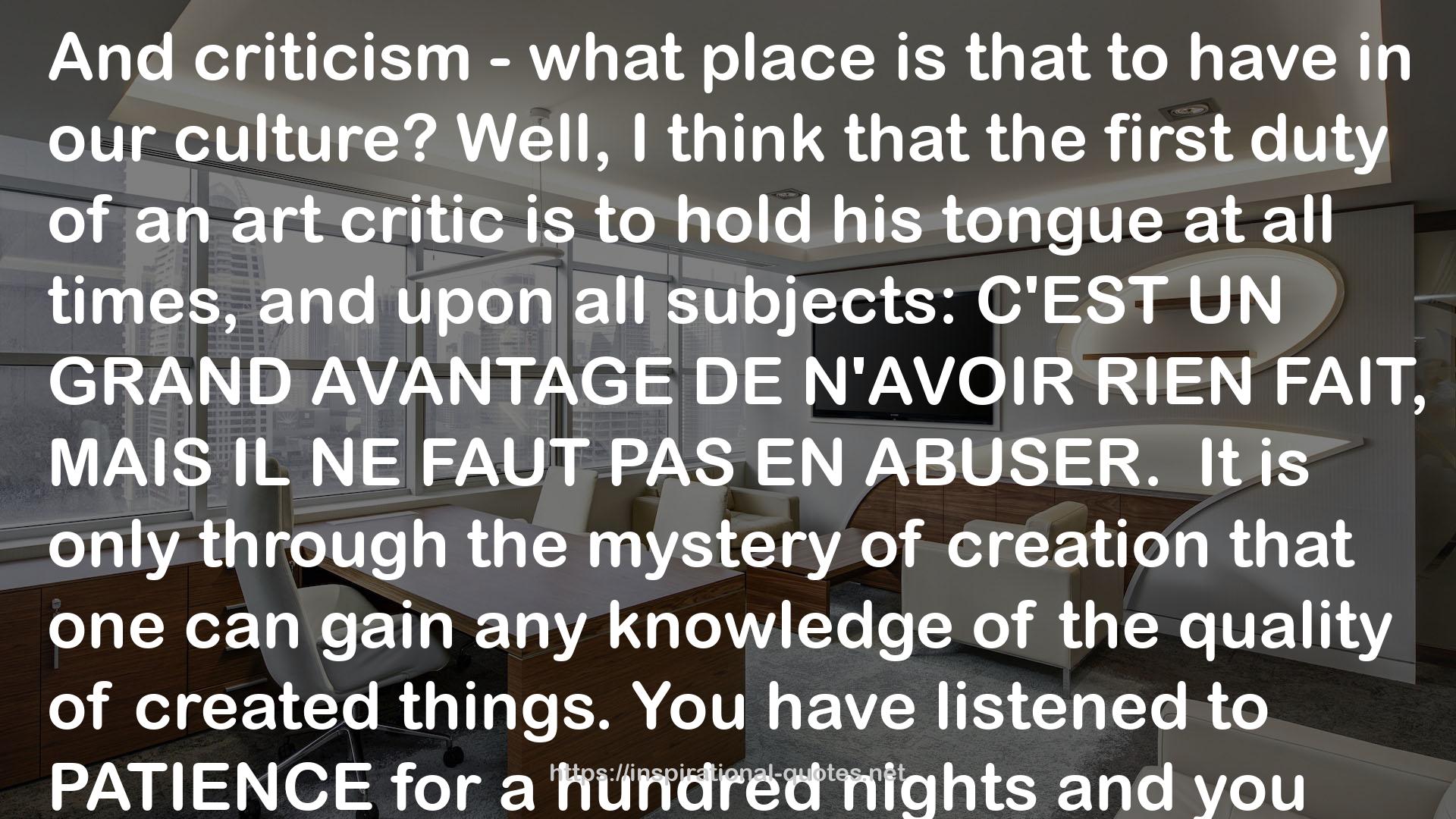" And criticism - what place is that to have in our culture? Well, I think that the first duty of an art critic is to hold his tongue at all times, and upon all subjects: C'EST UN GRAND AVANTAGE DE N'AVOIR RIEN FAIT, MAIS IL NE FAUT PAS EN ABUSER.
It is only through the mystery of creation that one can gain any knowledge of the quality of created things. You have listened to PATIENCE for a hundred nights and you have heard me for one only. It will make, no doubt, that satire more piquant by knowing something about the subject of it, but you must not judge of aestheticism by the satire of Mr. Gilbert. As little should you judge of the strength and splendour of sun or sea by the dust that dances in the beam, or the bubble that breaks on the wave, as take your critic for any sane test of art. For the artists, like the Greek gods, are revealed only to one another, as Emerson says somewhere; their real value and place time only can show. In this respect also omnipotence is with the ages. The true critic addresses not the artist ever but the public only. His work lies with them. Art can never have any other claim but her own perfection: it is for the critic to create for art the social aim, too, by teaching the people the spirit in which they are to approach all artistic work, the love they are to give it, the lesson they are to draw from it. "
― Oscar Wilde , The English Renaissance of Art
